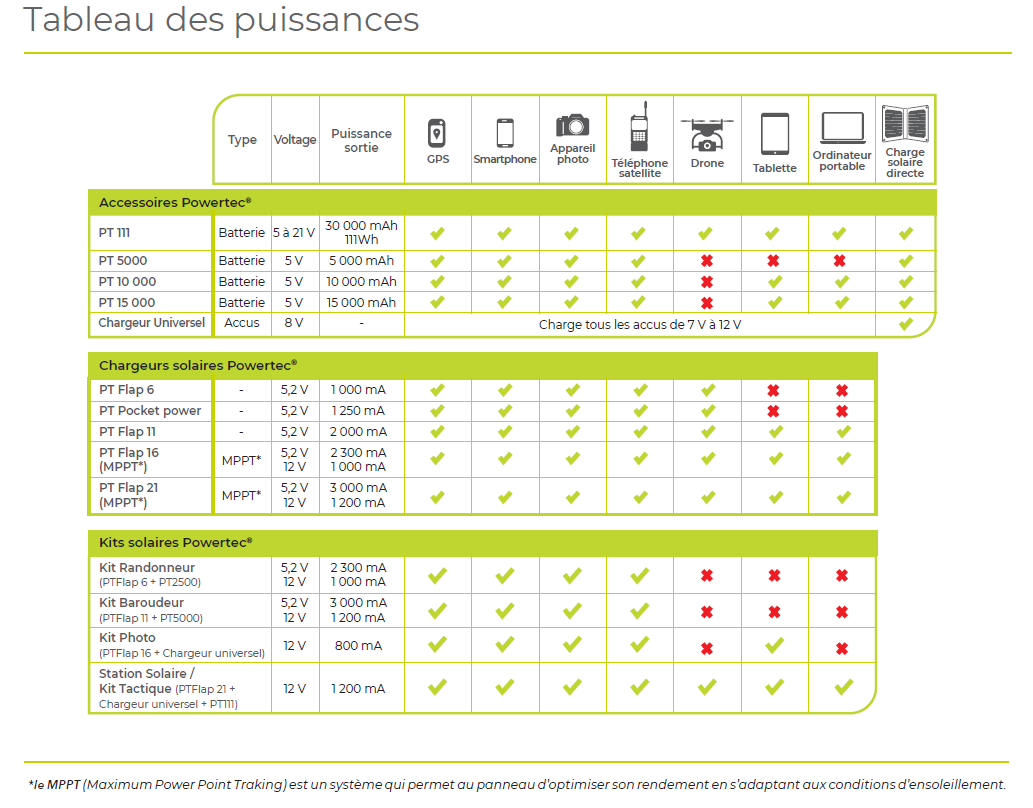Mini Cart
The need for a solar battery?
Solar energy is a renewable energy source that has been gaining popularity in recent years. Through the use of solar panels, it is possible to capture solar energy and convert it into electricity. However, to store this energy and make it usable at any time, it is necessary to have a solar panel battery.
Solar batteries are energy storage devices that store the energy produced by solar panels during the day for later use, especially during periods of low sunlight.
Solar batteries are available in different types, including lead-acid batteries, lithium-ion batteries, AGM solar batteries and gel batteries. There is also a resurgence of Phosphate/LiFePo4 technology batteries, known for their longer life and higher number of charge cycles.
What are the different types of solar batteries?
Solar batteries are rechargeable batteries used to store the energy produced by solar panels. Solar batteries are primarily used for off-grid installations or for backup applications in the event of a power failure. Solar batteries have charge and discharge cycles that depend on the type of battery used.
The life of solar batteries depends on many factors, including storage capacity, discharge frequency, number of charge and discharge cycles, and ambient temperature. It is important to choose a solar panel battery that suits your needs in terms of storage capacity and life span.
Lead acid batteries are the oldest and most common. They have been used for many years in cars and trucks. Lead-acid batteries are inexpensive, but have a relatively short life span and must be replaced regularly.
Lead-acid batteries are the most commonly used batteries for solar energy storage because of their relatively low cost. However, they have a limited lifespan compared to lithium-ion batteries and are not as efficient for fast charging.
Lithium-ion batteries are newer and offer higher storage capacity and longer life than lead-acid batteries. Lithium-ion batteries are also lighter and take up less space than lead-acid batteries. They are also lighter and more compact than lead-acid batteries, making them ideal for residential and commercial solar installations.
AGM solar batteries and gel batteries are maintenance-free types of batteries that have a longer life than lead-acid batteries. AGM solar batteries are also vibration and shock resistant, making them ideal for mobile installations.
When it comes to batteries LiFepo4 Lithium Ferro Phosphate technology, which appeared in 1996, is supplanting other battery technologies because of its technical advantages, its low discharge effect, more than 3500 charge cycles (10 years) and its very high level of safety.
Does the installation of panels require a solar battery?
In terms of solar panel installation, there are several options available, including solar kits and solar panels sold separately. Solar kits are complete packages that include the solar panels, solar batteries and accessories needed for installation.
Solar panels and solar batteries are often sold as a solar kit, which includes all the necessary hardware for a solar installation. Solar kits can be used for self-consumption, which means that the energy produced is consumed directly on site, or to be connected to the electrical grid to sell the excess energy produced.
The solar panel battery is a battery designed specifically for use with solar panels. The solar gel battery is another option for storing solar energy. Lithium-ion batteries are also used for solar energy storage.
Solar energy storage is important because solar energy is not always produced when you need it. That’s why it’s important to have enough storage capacity to use the solar energy produced when you need it.
Installing solar panels and solar batteries can be a significant investment, but it can save you money in the long run. It’s important to choose the right types of solar batteries for your installation based on your needs for storage capacity and lifespan.
In summary, solar energy is a clean and sustainable source of energy, but to store this energy, it is necessary to use solar batteries. Solar batteries are available in different types, including lead-acid batteries, lithium-ion batteries and gel batteries. It is important to choose a solar battery that suits your needs in terms of storage capacity and lifespan. Solar panels and solar batteries are often sold as a solar kit, which includes all the necessary hardware for a solar installation. Installing solar panels and solar batteries can be a significant investment, but it can save you money in the long run.

